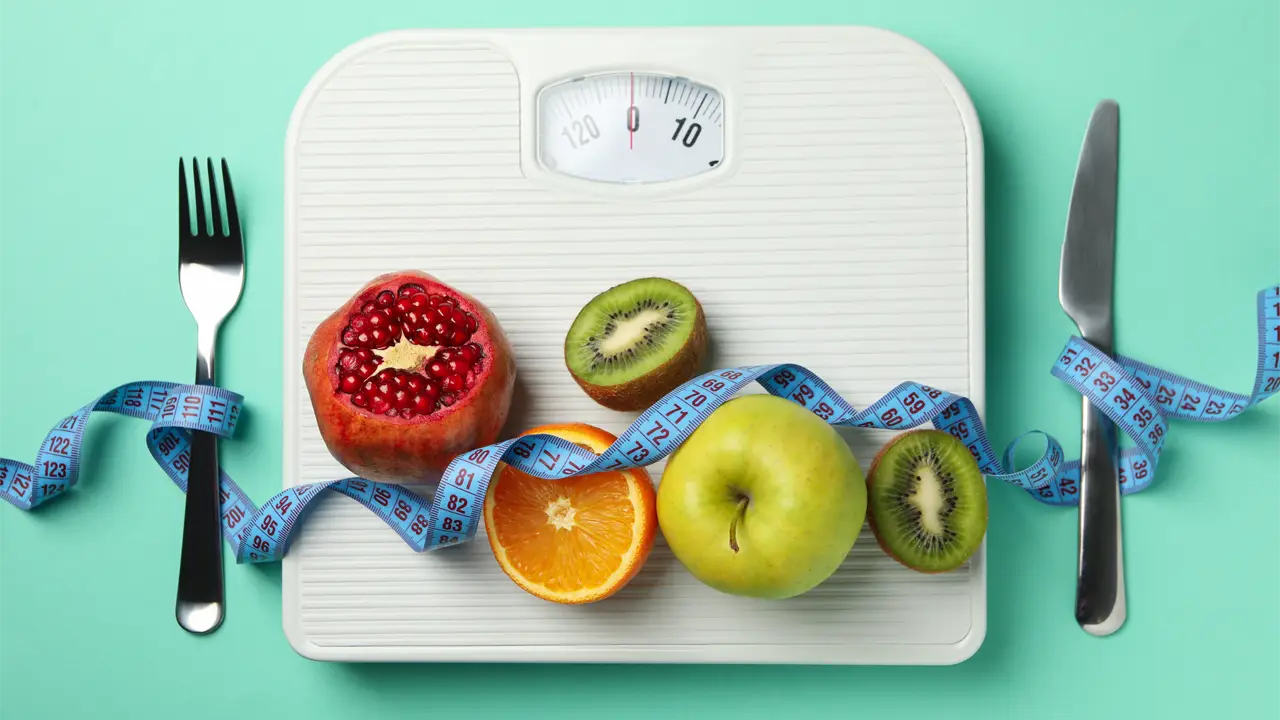Achieving and maintaining good health requires proper nutrition and weight management. Unhealthy weight and poor nutrition can cause various diseases, including chronic and acute illnesses. However, patients can adopt balanced diet and attain a healthy weight with the right guidance and resources.
This article aims to provide patients with tips and advice on weight control and nutrition while briefly discussing how it can reduce depression and anxiety. Additionally, we will explore how remote patient monitoring (RPM) can aid in this journey towards better health.
What is Proper Nutrition and Weight Management?
Maintaining good health requires appropriate weight management and nutrition to mitigate cardiovascular risk factors associated with obesity. Proper nutrition entails consuming a balanced diet that provides the body with essential nutrients in appropriate proportions to support optimal functioning. Effective weight management, on the other hand, involves adopting a nutritious diet and engaging in regular physical activity to maintain a healthy body weight and reduce the risk of developing certain health conditions.
The Link Between Weight Management and Nutrition
Weight management and nutrition are closely linked, as what you eat can have a significant impact on your weight. Ensuring a healthy weight status requires a balance between the calories you consume and the energy you burn through physical activity. Eating a nutritious diet that is rich in whole foods such as fruits, vegetables, whole grains, lean proteins, and healthy fats can help you achieve and maintain a healthy weight.
Conversely, consuming too many calories from unhealthy foods such as sugary drinks, processed snacks, and fast food can lead to weight gain and increased risk of chronic diseases such as type 2 diabetes, heart disease, and certain cancers. Therefore, it is important to prioritize plan-based diet as a key component of weight management.
How Nutrition and Weight Management Help Reduce Depression and Anxiety
Food choices have a significant impact not only on one’s physical well-being but also on their mental health. Consuming a nutritious diet, which consists of fruits, vegetables, whole grains, lean protein, and healthy fats, can reduce the chances of developing anxiety and depression.
Conversely, a diet that is high in processed and sugary foods can increase the risk of depression and anxiety.
Managing one’s weight is also crucial for mental health since being overweight or obese has been linked to higher rates of anxiety and depression. In addition, losing weight can help alleviate symptoms of depression and anxiety by improving self-esteem and confidence. Nutrients such as omega-3 fatty acids, magnesium, and B vitamins found in healthy foods have also been linked to reducing symptoms of depression and anxiety.
In addition to proper nutrition and weight management, other strategies such as therapy, medication, mindfulness practices, and exercise can also be effective. A holistic approach that addresses physical, emotional, and cognitive health is key to managing depression and anxiety. Alongside these traditional strategies, incorporating RPM can provide patients with personalized and comprehensive care.
By allowing healthcare providers to monitor vital signs, symptoms, and medication adherence remotely, potential issues can be detected early, enabling timely intervention. Overall, adopting healthy living habits and a holistic approach to managing mental health can lead to improved well-being and a better quality of life.
Tips and Advice for Weight Management and Nutrition for Patients
Tips and Advice for Achieving and Maintaining a Healthy Weight through Proper Nutrition and Exercise
Living a healthy lifestyle and maintaining a balanced body composition are essential for overall well-being and preventing diseases. To achieve this, individuals should adopt proper nutrition and exercise habits. Here are some practical tips and advice for patients on how to achieve and maintain a healthy weight through adequate nourishment and exercise:
- Eat a Balanced Diet: Focus on consuming a complete and balanced nutrition consisting of a variety of nutrient-dense foods, including fruits, vegetables, whole grains, lean proteins, and healthy fats. Avoid processed and high-fat foods.
- Control Portions: Managing portion sizes is crucial for weight management, and one effective strategy is to use smaller plates, avoid going for a second serving, and practice mindful eating.
- Stay Hydrated: Drink plenty of water throughout the day to help with digestion, metabolism, and appetite control.
- Exercise Regularly: Incorporating a regular exercise program is crucial for weight management and maintaining a healthy body mass index. It is recommended to engage in at least 30 minutes of moderate-intensity exercise most days of the week to support weight control and overall health.
- Get Enough Sleep: Sleep plays a crucial role in weight control. Aim for at least 7-8 hours of sleep each night.
Guidelines for Healthy Eating Habits
Consuming a nutritious diet with plenty of fruits and vegetables, whole grains, lean protein, and healthy fats is crucial for good health. Here are some guidelines for healthy eating habits:
- Fruits and vegetables: Consume a variety of fruits and vegetables as they provide essential vitamins, minerals, and fiber. Aim to include a range of colors to get a variety of nutrients.
- Whole grains: Include whole grains such as brown rice, quinoa, and whole-wheat bread, which are rich in fiber and keep you feeling full for longer.
- Lean protein: Choose lean protein sources such as chicken, fish, beans, and tofu. These provide essential amino acids required for the growth and repair of the body.
- Healthy fats: Choose healthier fats such as those found in nuts, seeds, and fish, and limit saturated and trans fats, which increase the risk of heart disease.
- Limit sugar and salt: Too much sugar and salt can lead to health problems. Choose foods that are low in added sugars and salt.
- Stay hydrated: Drink plenty of water and limit sugary drinks.
Importance of Setting Realistic Goals, Tracking Progress, and Making Small, Sustainable Changes to One’s Lifestyle.
Setting realistic goals, tracking progress, and making small, sustainable changes to one’s lifestyle are essential for achieving and retaining a healthy weight range. Here are some tips for setting and achieving realistic goals:
- Be Specific: Set specific, measurable, and achievable goals. For example, aim to lose 1 to 2 pounds per week.
- Track Progress: Keep track of your progress by measuring and recording your weight, body measurements, and other health indicators. Additionally, incorporate RPM to promptly address any health concerns and suggest changes in diet and exercise to promote better body weight and overall patient outcomes with the help of your care providers. RPM refers to the use of technology to monitor and track patient health data from a distance, enabling healthcare providers to provide proactive and personalized care.
- Celebrate Successes: Celebrate your successes, no matter how small. This will help keep you motivated and on track.
- Make Small, Sustainable Changes: Make small, sustainable changes to your lifestyle, such as adding more fruits and vegetables to your diet or taking the stairs instead of the elevator.
How DrKumo Remote Patient Monitoring Can Help Patients Achieve Better Health Through Personalized Care and Real-time Data Tracking
Achieving and maintaining good health can be challenging, especially when dealing with existing medical conditions. DrKumo RPM is a state-of-the-art solution that can help patients manage their condition in the comfort of their own homes. With DrKumo RPM, you can monitor your progress, receive timely interventions, and interact with your healthcare provider remotely. Here are some ways in which DrKumo RPM can help you improve your health:
- Personalized Care: With DrKumo RPM, your healthcare provider can create a personalized care plan that fits your individual needs and health goals. You can receive tailored diet plans and exercise routines that suit your lifestyle and preferences.
- Real-time Data Tracking: DrKumo RPM offers real-time data tracking and insights, allowing you and your healthcare provider to monitor your progress and make informed decisions. This feature is particularly useful if you have health risks such as obesity, diabetes, or high blood pressure.
- Timely Interventions: Your healthcare provider can make timely interventions through DrKumo RPM. If your weight, blood pressure, or glucose levels deviate from the normal range, your healthcare provider can promptly adjust your treatment plan or provide additional support.
- Motivation and Support: Through DrKumo RPM, your healthcare provider can provide motivational support and encouragement to help you stay on track and achieve your goals. You can receive alerts and reminders to take your medication, follow your diet plan, or exercise regularly.
- Remote Interaction: DrKumo RPM allows you and your healthcare provider to interact remotely, eliminating the need to go to the hospital or clinic. You can share your health data, ask questions, and receive feedback from your healthcare provider through a secure, HIPAA-compliant platform.
- Easy Access: DrKumo RPM is easy to use and can be accessed from anywhere, making it convenient for you to track your progress and stay connected with your healthcare provider. You can use your mobile device or computer to access DrKumo RPM, which saves time and reduces the burden of frequent hospital visits.
In summary, DrKumo RPM solution is a powerful tool that can help you achieve better health through personalized care, real-time data tracking, and timely interventions. By using DrKumo RPM, you can improve your nutrition, adopt a healthy lifestyle, and reduce your health risks.
Takeaways
Taking care of one’s health through healthful food choices and weight control is crucial to prevent chronic diseases and enhance overall well-being. It is important to adopt healthy eating habits and engage in regular physical activity to achieve weight-loss goals and improve mental health by reducing the risk of depression and anxiety. With the assistance of DrKumo RPM Solution, patients can monitor their progress, stay motivated, and attain better health outcomes.
Control weight and nutrition with DrKumo’s personalized digital health solutions. Use remote monitoring for easy tracking and guidance. Contact DrKumo now for better health.
Disclaimer: The information provided is for general educational purposes only and not a substitute for professional medical advice. Good health requires healthy eating habits and weight management. Always consult a registered dietitian or qualified health professionals for an individualized plan to meet specific needs and goals.








